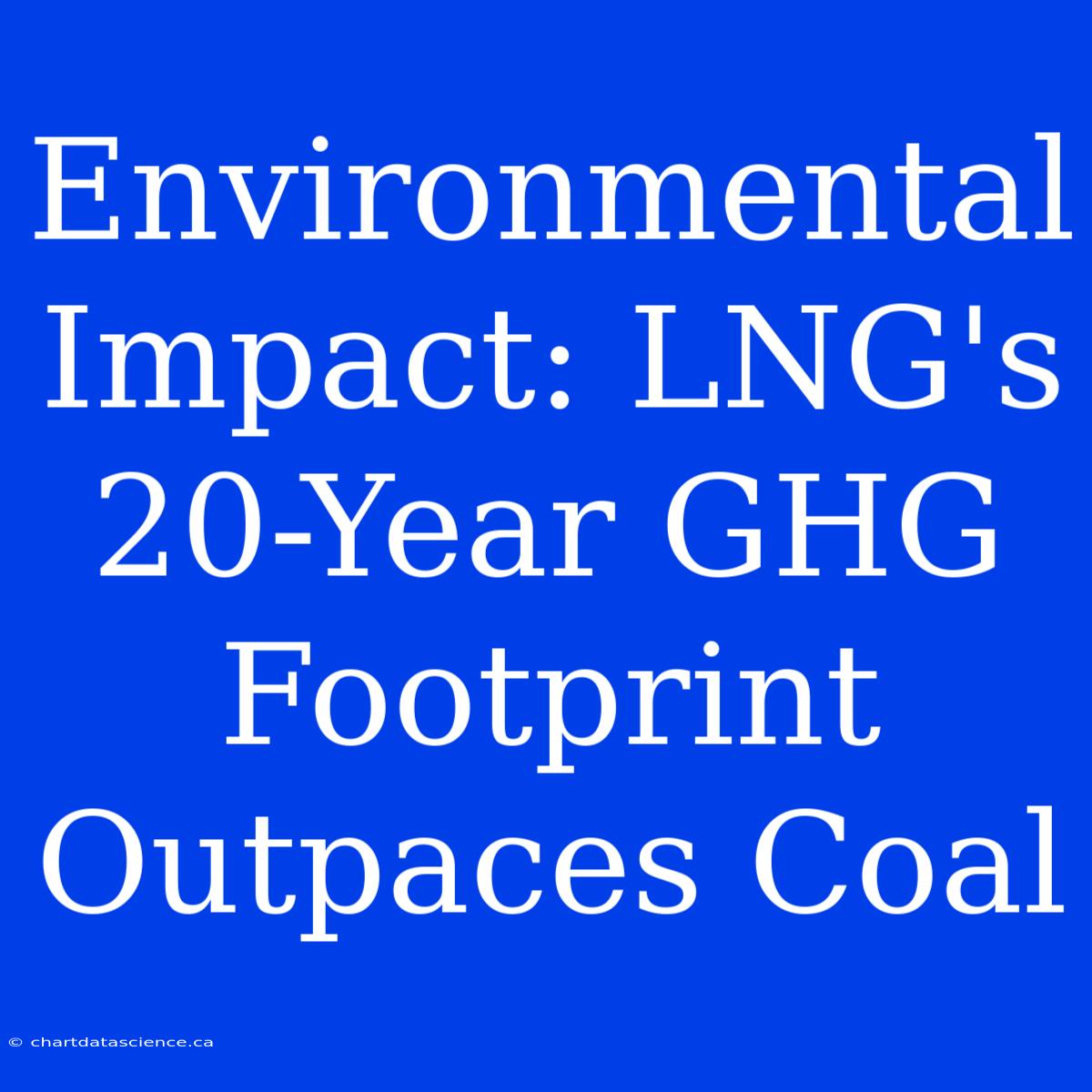Environmental Impact: LNG's 20-Year GHG Footprint Outpaces Coal
Liquefied natural gas (LNG) has been touted as a cleaner alternative to coal, but recent studies are calling that claim into question. A growing body of evidence suggests that over a 20-year timeframe, LNG's greenhouse gas (GHG) footprint actually exceeds that of coal.
This revelation is a major blow to the LNG industry, which has been pushing hard to promote itself as a "bridge fuel" towards a low-carbon future. The reality, however, is much more complex.
The Hidden Emissions of LNG
While natural gas itself burns cleaner than coal, the entire lifecycle of LNG production, transportation, and use involves a significant amount of GHG emissions. Here's a breakdown of the key factors:
- Extraction and processing: The extraction and processing of natural gas can release methane, a potent GHG, into the atmosphere.
- Liquefaction: The process of converting natural gas into LNG requires vast amounts of energy, often derived from fossil fuels, which contributes to GHG emissions.
- Transportation: LNG tankers, which transport the liquefied gas across the globe, are energy-intensive vessels with significant emissions.
- Regasification: Converting LNG back to natural gas also requires energy and releases emissions.
A 20-Year Perspective
The 20-year timeframe is crucial for understanding the full impact of LNG. This timeframe allows for the inclusion of "upstream" emissions, such as those from extraction and processing, and "downstream" emissions from transportation and regasification.
Research has consistently shown that over this 20-year timeframe, LNG's GHG footprint surpasses that of coal. This is because the methane leakage during extraction, processing, and transportation significantly increases the overall emissions.
The Need for Transparency
The LNG industry has been criticized for underestimating the methane leakage from their operations. Transparency and accurate data are crucial for making informed decisions about energy choices.
It's essential to move beyond the simplistic narrative of LNG as a "cleaner" fuel and acknowledge the full range of environmental impacts associated with its production and use.
The Road Ahead
While LNG may have a place in the energy transition, its role needs to be carefully assessed. Investing in renewable energy sources and implementing stringent regulations to minimize methane leakage are critical steps towards a truly sustainable energy future.
We need a more nuanced understanding of the environmental impacts of LNG and other energy sources. Only then can we make informed decisions about the energy mix that will best support a healthy planet and a prosperous future.

